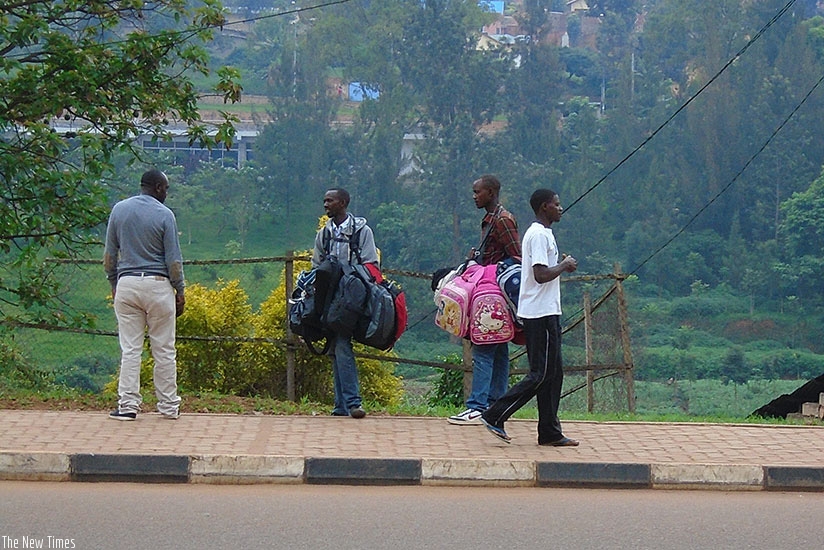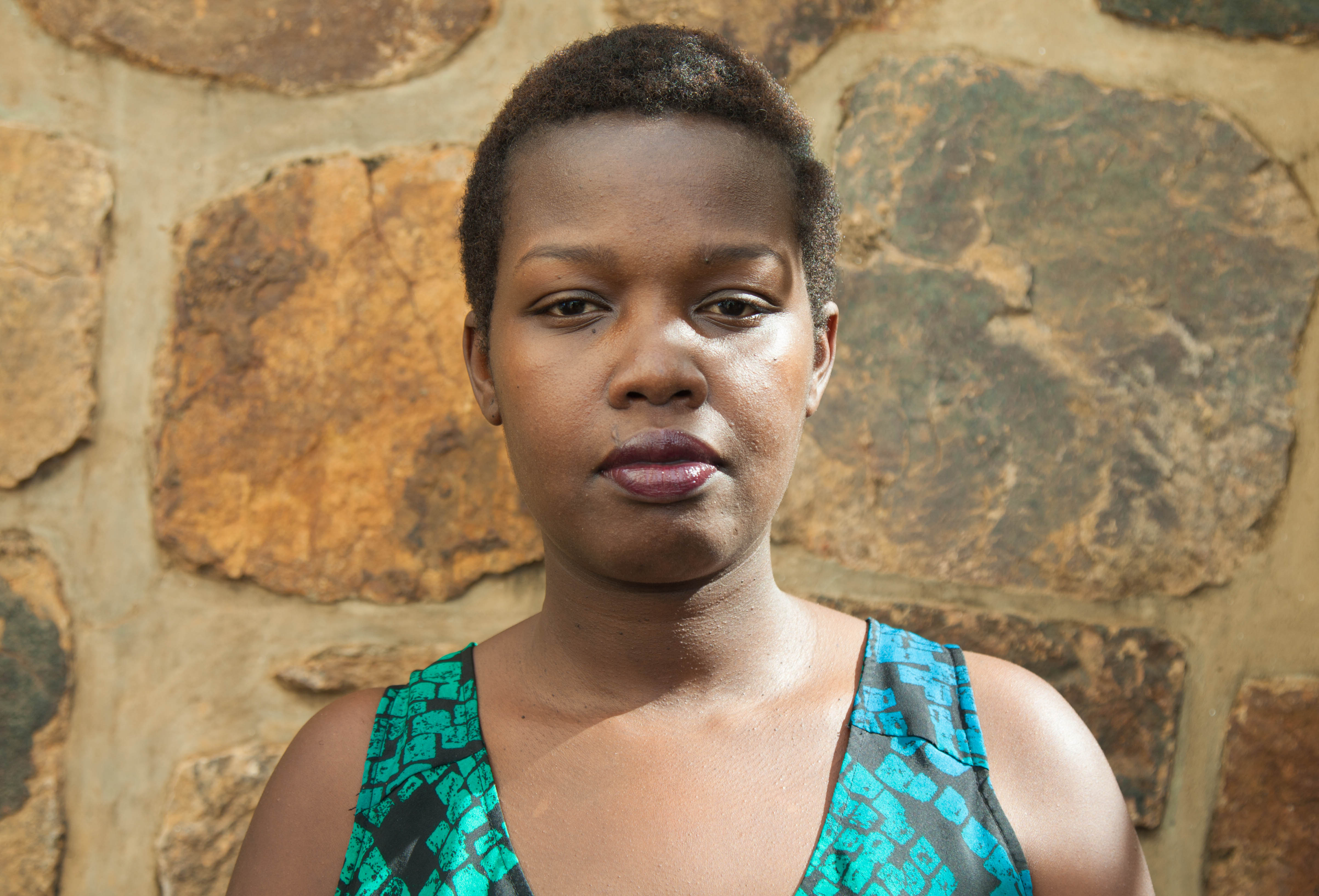Police to enforce ban on street vending
The Rwanda National Police will, with effect from today, take over the operation against Kigali street vending.

A man bargains with backpack vendors in Kigali. (Steven Muvunyi)

